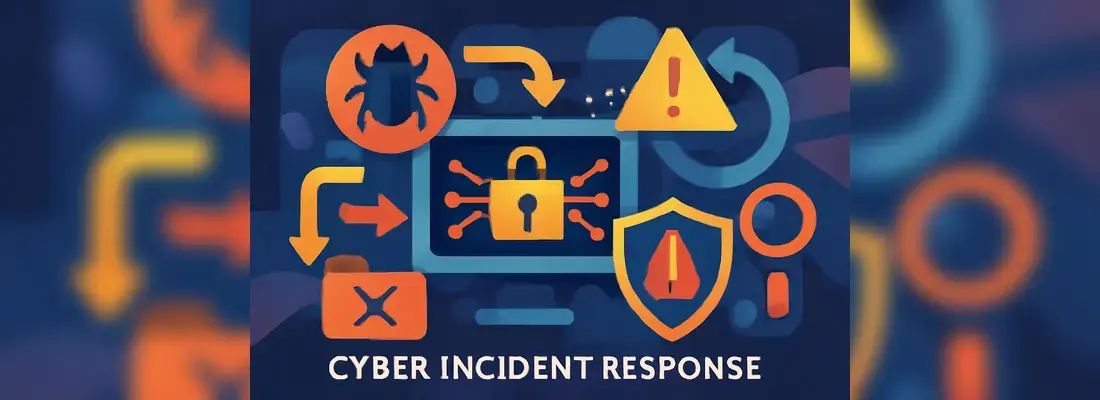Date: 22 April 2024
Cybersecurity and Search Engine Blacklisting
Avoiding search engine blacklisting is crucial for maintaining a site's visibility and SEO performance. When a website is blacklisted, it is excluded from search engine results, effectively hiding it from potential visitors.
Cybersecurity plays a vital role in preventing such incidents. Search engines like Google may ban platforms that engage in malicious activities or spammy tactics, even if the site owner is not responsible. One Adelaide SEO company emphasises that strong cybersecurity measures are essential to prevent website sabotage, which could lead to blacklisting and severely impact SEO.
Website Uptime and Search Engine Optimisation
Maintaining website uptime is essential for both the user experience and SEO, as downtime caused by attacks can significantly impact a site's performance. Extended periods of downtime can lead to serious concerns and a decline in search engine rankings. When Google detects a site outage, it interprets it as a security breach and avoids recommending the affected page to users.
During downtime, Google's crawling bots encounter a 500 HTTP status code error when attempting to access the website. Repeated instances of this error signal prolonged outages, prompting Google to crawl the site less frequently and reducing its ranking potential. Additionally, unavailable websites result in visitors leaving to find alternative options, leading to decreased traffic and lower SEO rankings. SEO experts, such as Dagmar Marketing, offer services that not only optimize websites for search performance but also support strategies to minimize downtime and strengthen overall site reliability.
Implementing cybersecurity measures, including robust server infrastructure, intrusion detection systems, regular vulnerability assessments, and technical SEO audits, can mitigate the risk of downtime. A technical SEO audit, as an integral part of website security, such as the one included in the SeoProfy audit, ensures that the site's SEO elements are optimized while maintaining robust security protocols and thus fortifying its defences against downtime-inducing incidents.
Cybersecurity and Negative SEO Threats
Negative SEO, also referred to as black hat SEO, poses a threat to websites by employing malicious tactics to undermine their search engine rankings. These tactics range from hacking into websites to manipulate content to deploying misleading information and undesirable keywords to manipulate search results.
Detecting instances of negative SEO can be challenging. However, several indicators can help identify such activities:
- Unexpected links appear in existing articles. These are often added by malicious actors and may lead to unrelated or potentially harmful websites, compromising the integrity of the original content.
- Insertion of backlinks into a website's source code using aggressive tactics. They are often hidden from view and are intended to manipulate search engine rankings by artificially boosting the linked site's authority.
- Unauthorised creation of new pages on the site. These may contain spammy content or malicious code, posing a threat to the website's security and reputation.
- Unusual fluctuations in search engine rankings. This refers to significant and unexpected changes in a website's position in search engine results pages (SERPs).
Effective cybersecurity measures serve as essential safeguards against cybercriminals employing black hat SEO techniques. These include the following:
- Timely implementation of security updates
- Adoption of security tools
- Use of strong passwords
- Vigilant monitoring of website activities
- Implementation of reliable backup systems
Website Security, Page Load Speed, and SEO
Improving page load speed is crucial for SEO rankings, as it directly impacts the user experience on both mobile and desktop devices. Google prioritises page load speed as one of the Core Web Vitals essential for a positive user experience. Slow-loading websites frustrate users and often result in higher bounce rates. In essence, ensuring good page load speeds is vital for increasing a site's visibility in search engine results pages (SERPs).
Cybersecurity measures also play a role in indirectly improving page load speed. Technologies such as content delivery networks (CDNs) and load balancers, commonly integrated into cybersecurity strategies, can significantly enhance page load speed. CDNs, consisting of a distributed network of servers, accelerate content delivery by caching original content on multiple servers, ensuring swift access for website visitors.
Yet, apart from just faster loading speed, LinksManagement explains that CDN helps SEO by creating a better user experience and improving security (especially when it comes to DDoS attacks). Besides, if you want to scale your business, CDN simplifies the whole process, as you can have virtually any number of servers around the globe.
Monitoring page speed performance is essential for ongoing optimisation efforts. Utilising tools like Google Search Console and Google Lighthouse enables website owners to analyse their site's performance, including page load speed. Google recommends aiming for a page load time of under three seconds for an optimal user experience.
Building User Trust and Search Engine Optimisation
Building user trust is paramount for the success of online businesses and significantly influences SEO performance. When users trust a website, they are more likely to engage with its content, make purchases, and recommend it to others, ultimately contributing to increased links and traffic, thereby enhancing SEO rankings. Visual branding elements—like a professional business logo—also contribute to this trust by reinforcing credibility and brand recognition.
The significance of cybersecurity in cultivating user trust cannot be overstated. By implementing robust security measures such as SSL certificates and secure payment gateways, websites demonstrate their dedication to safeguarding user information and providing a secure browsing environment.
Conversely, websites lacking adequate cybersecurity measures are susceptible to hacking and data breaches, eroding user trust. Visitors perceive such websites as unreliable and may avoid engaging with them altogether.
Additionally, including a comprehensive business privacy policy with security clauses outlining cybersecurity practices instills confidence in users regarding the safety of their personal data. Incorporating these measures not only fosters user trust but also positively impacts SEO by encouraging greater user engagement and interaction with the website's content.
Bottom Line
As cyber threats continue to evolve, safeguarding sensitive data becomes paramount for both users and search engines. Strong cybersecurity measures not only protect against potential breaches but also indirectly contribute to improved SEO outcomes. From maintaining data integrity to averting search engine blacklisting, each aspect underscores the importance of robust security protocols in bolstering a website's visibility and trustworthiness.
Furthermore, enhancing user trust through cybersecurity initiatives fosters positive interactions and strengthens SEO efforts by encouraging user engagement and promoting website credibility. In essence, investing in cybersecurity is not just about protecting data; it's about fortifying the foundation for successful SEO and fostering long-term user trust.
.jpg?width=650&name=147369958_m_normal_none%20(1).jpg)








